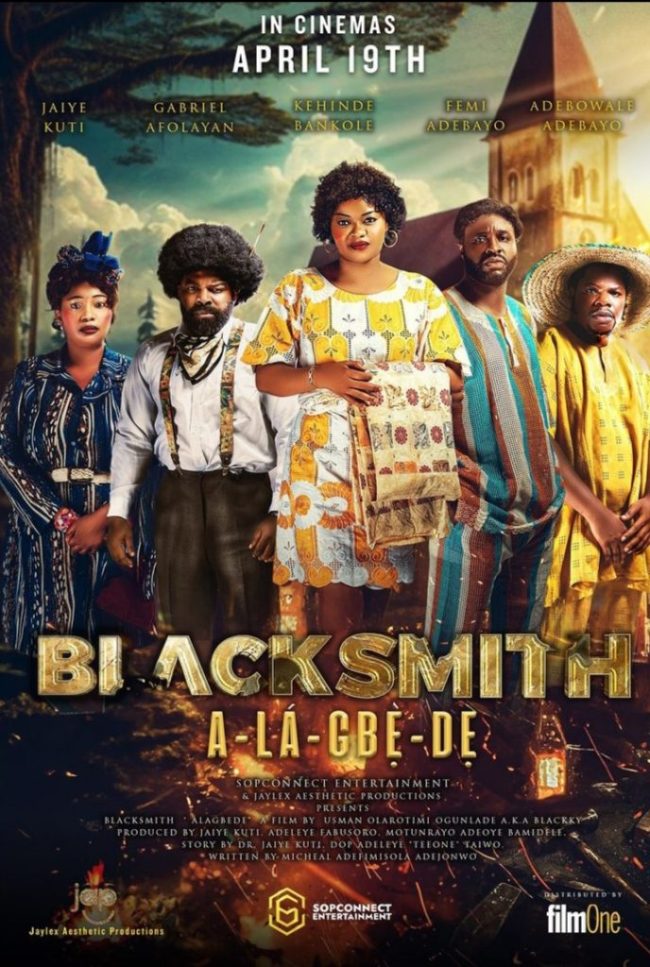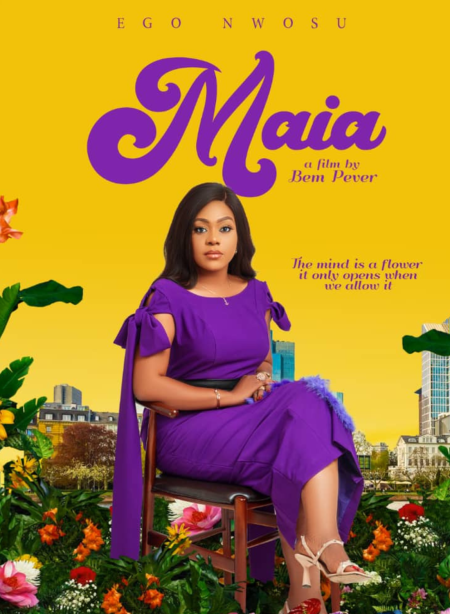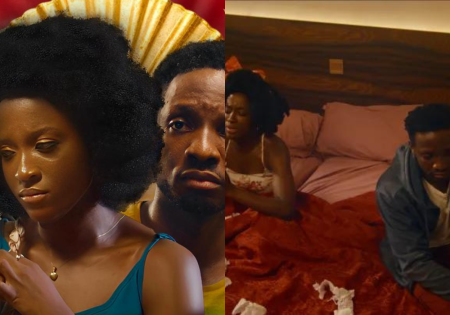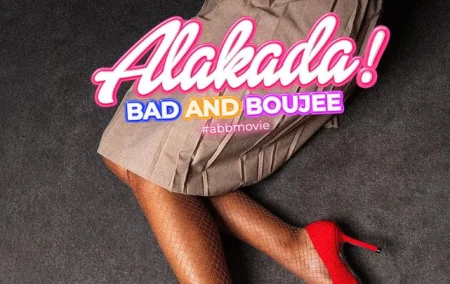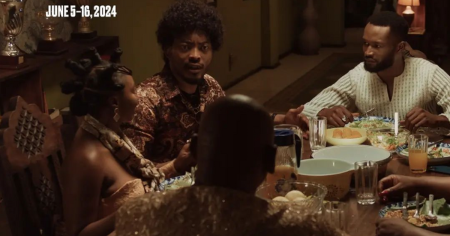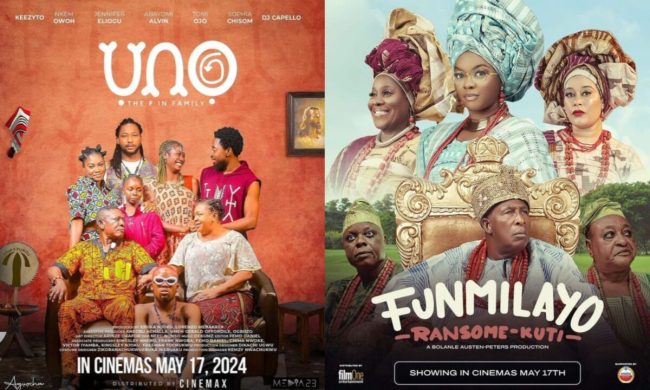You will love the Yoruba film Blacksmith (Alagbede), even though it may not stick with you in the long run. The film, which is presently playing in theaters, combines drama, comedy, and romance. The picture, which was directed by Usman “Blackky” Ogunlade and produced by Motunrayo Adeoye and Jaiye Kuti, features excellent acting throughout and needs nothing more.
The tale of Blacksmith (Alagbede) centers on Adio (Femi Adebayo), a blacksmith, and Omolewa (Kehinde Bankole), his sweetheart from a wealthy family. Adio had no choice but to struggle as a poor young man to live up to the expectations set by Omolewa’s mother (Bimbo Oshin), who was prepared to offer her daughter’s hand in marriage to a wealthy man. With the support of his friend Wole (Gbenga Afolayan), Adio made the decision to use money rituals to acquire fortune. As a result, he lost his peace of mind and started to dislike prosperity.
First of all, the romance portion of the film is more akin to a reimagining of the clichéd Nollywood productions from the 1990s and early 2000s, in which a poor lad with no aspirations for the future falls in love with the gorgeous daughter of a wealthy man. Nonetheless, I appreciate how the relationship was framed to lead to financial rituals and how lighthearted humor was included to the film. When I was seeing the movie at the theater, I couldn’t help but chuckle out, even in the somber parts.
As I mentioned before, this film has excellent performance and is deserving of an 8 out of 10. The moment with Adewale’s character, the first babalawo (witch doctor), gave me hope that this would be a fantastic film.
The cinematic lighting in the Babalawo scene was another amazing aspect of the scene. In the night sequences, the lighting staff performed a good job of lighting both the characters’ faces and the vast space they were in. This was also done for the scene in the night bathroom, where moonlight was simulated by blasting white light behind the trees. I’m giving this movie’s all-night scenes an eight out of ten so far. I will give the men responsible for the lighting and color grading of this movie a call if I decide to make a movie today.
Alagabede, the blacksmith, imitated Nigeria in the 1970s through the outfits. Afros and that era’s attire were popular on several of the actors. The cars and building design were also from that era. Since I missed the subtitles, I’m not sure if people who don’t understand Yoruba will appreciate the film. I also have no idea how well the film will do when it opens in theaters. But I’m confident that this film will perform well on streaming services and even become popular enough to trend on X’s social media account. Algbede’s Blacksmith receives a 7 out of 10.

